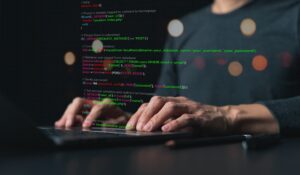What Did Elon Musk Study in College? A Complete Guide
Introduction
Elon Musk is among the greatest innovators of this time. He is fully credited with having created SpaceX, Tesla, Neuralink, and The Boring Company. Many consider him a genius entrepreneur. The question remains, though: What did Elon Musk actually study in college?
Musk studied different areas at the University of Pennsylvania. He got a Bachelor of Science degree in Physics and a Bachelor of Arts degree in Economics. These subject areas formed the basis from which he would work. He also pursued doctoral studies in applied physics at Stanford University but quit after two days.
This blog will take you through a detailed educational journey of his. You shall be informed where he studied, what he studied, and how that influenced his career.

1. Elon Musk’s Childhood and Early Education
Elon Musk was born in Pretoria, South Africa, in 1971. During his early years, Musk developed a proclivity for science and computers. In those days, he would relish reading about technology or outer space. He created his very first video game at age 12; it was called Blastar, and he sold it.
His first school was Waterkloof House Preparatory School. Then he went on to Pretoria Boys High School. There-he-was-bullied-from-time-to-time-but-did-not-lose-his-focus-on-the-studies. As time passed through his middle years, his interest in engineering and science grew.
He wished to emigrate out of South Africa in the late 1980s. Internment would have never appealed to him because he wanted to look for other avenues abroad. Because of the Canadian relation of his mother, he applied for a Canadian passport.
2. First Step: University of Pretoria
Musk studied for some time at the University of Pretoria prior to leaving South Africa. He went to the university for something like five months. At the time, he actually did not intend to obtain a degree from that particular institution, but aimed to make it over to North America.
This brief experience gave Musk a taste of higher education, but his eye was always set on overseas universities. Being aware that the United States and Canada presented greater opportunities for science and entrepreneurship, he was so focused on studying there.
3. Move to Canada and Queen’s University
In 1989, Musk moved to Canada. He enrolled at Queen’s University in Kingston, Ontario; and there for two years.
He studied general subjects as he was thinking of transferring to a bigger university. they met Justine Wilson at Queen’s, who would later become his first wife.
Musk had chosen Queen’s partly because going there meant he would avoid South African military service. It also was a stepping stone toward the United States.
4. Transfer to the University of Pennsylvania
When he was about to enter the university in 1992, he actually switched from Queens University to the University of Pennsylvania. This is where really and truly his academic journey started.
At UPenn, he pursued two degrees at the same time:
- Bachelor of Science (B.S.) in Physics
- Bachelor of Arts (B.A.) in Economics at the Wharton School of Business
By 1995, Musk finished coursework for both degrees; they were, however, officially awarded in 1997.
This decision revealed the wide range of interests he had. He was not merely interested in science and technology, but also in markets and money, as well as business strategy.
5. Why Physics?
Physics studies matter, energy, and natural laws. Musk has said many time that physics trained him to think logically.
Physics helped him:
- Big problems should be divided into smaller ones.
- Approach challenges with a scientific approach.
- Apply theory to actual engineering.
SpaceX, where he engaged in operations pertaining to rockets, Musk used physics every day. He used his knowledge of physics to design batteries at Tesla.
In his own words:
“Physics is a good framework for thinking. Boil things down to their fundamental truths and reason up from there.”
6. Why Economics?
As Musk was studying Physics, he also did a double major in Economics at the Wharton School. Economics gave Musk insight into how markets operate. The discipline explained costs, pricing, supply, and demand to him.
Economics became his way of becoming an entrepreneur. He learned to raise capital, to invest, and to appraise risk. These things have been vital for him to grasp so that he could run Tesla and SpaceX directly.
An economics degree was what separated him from just being an engineer-he was also a businessman. This conjunction of hard science with hard finance gave him the very rare ability to dream big-and finance those dreams.
7. Campus Life at UPenn
During his time at UPenn, Musk had a very busy life. He and a friend rented a big house off-campus, and out of that house, they built a small nightclub to make money for tuition and rent.
He was not merely studying theory but actually engaging in business in the real-world setting. The ability to dream up a means of money and survival speaks of his entrepreneurial spirit.
He worked hard in his academics. He was pulling through all nighters to finish his assignments. His curiosity propelled him to study beyond what was offered.
8. Internships and Early Work
During college, Musk took internships that gave him real-world experience.
- He was employed at a startup making ultracapacitors for energy storage.
- He did an internship at Rocket Science Games, a gaming company based out of Silicon Valley.
With his internships, he got a feel for the tech and startup worlds. He saw the Internet growing and was certain it would change the world.
9. The Stanford PhD Episode
After graduating from UPenn, one thing leads to another, and Musk was accepted into a PhD program in applied physics and materials science at Stanford University in 1995.
He, however, stayed only for two days. He dropped out almost immediately.
Why? The internet boom had just begun. Musk believed he could not waste time in school when out there lay real opportunities. He was eager to start companies in the new digital economy.
Big move. Many felt he made a wrong decision, but Musk stuck to his decision.
10. First Startup: Zip2
After completing their studies at Stanford, Elon and Kimbal set up the Zip2 company based out of Palo Alto and supplying online city guide services to newspapers.
In 1999, Zip2 was sold to Compaq for $307 million. From that sale, Musk made a great fortune for the first time.
That success proved that he was right in leaving Stanford: he had used all his knowledge of physics, economics, and computer science to form an actual business.
11. How His Education Shaped His Companies
SpaceX
It was physics knowledge that gave Musk an edge in designing rockets capable of being reusable. He knew orbital math and propulsion.
Tesla
Economics knowledge helped him run Tesla, manage supply chains, and raise funding. Physics knowledge helped him understand batteries and energy efficiency.
SolarCity and Beyond
This also helped him push for the use of solar energy, high-speed transit (Hyperloop), and brain-computer interfacing (Neuralink).
In every case, Musk drew from what he learned-from physics and economics.
12. Lessons from Musk’s Education
Elon Musk’s college story shows:
- If equipped with education-a set of tools-if they are put into action, anything could be changed.
- Combining science with business has its own significant power.
- Staying in one’s comfort zone is not as fruitful as risking.
- Being well versed in physics aids in the solution of problems of a technical nature.
- Economics helps us understand money, growth, and risk; accordingly, we have to manage these in normal life.
Musk dropped out of his PhD program, but his college degrees had something to do with it.
13. Summary of His College Path
- University of Pretoria: studies for 5 months.
- Queen’s University (Canada): two years toward undergraduate.
- University of Pennsylvania: dual degrees: B.S. in Physics and B.A. in Economics.
- Stanford University: Ph.D. enrolled and dropped within two days!
This path shows his mix of curiosity, ambition, and bold decision-making.
14. Final Thoughts
What did Elon Musk do in college? Physics and Economics. Those subjects developed his powers of thinking, deepened his approach to problem solving, and blossomed into such business skills.
The brief stay at Stanford does carry on with the message that success does not necessarily lie through the conventional path. He chose action instead of further schooling. From this decision came many of the most important companies ever created.
In today’s world, based on his course of life, Musk gives an ever-clear lesson to students and entrepreneurs: learn deeply but really go out there and put that learning to work.




